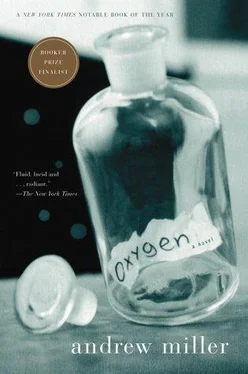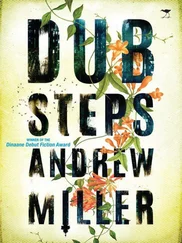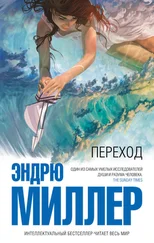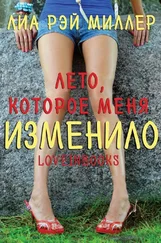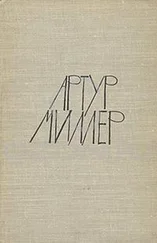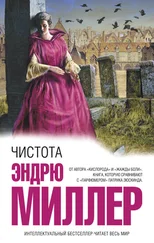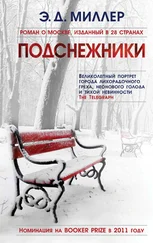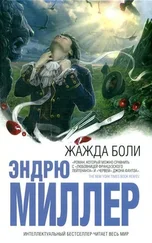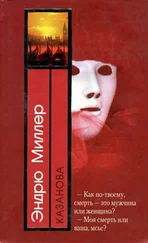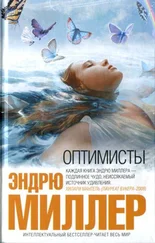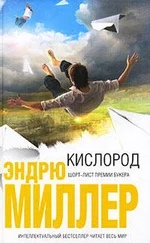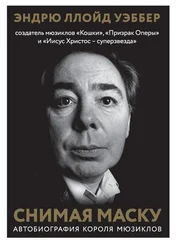‘We’ve only seen your face,’ said Ranch, making himself comfortable on the toilet seat under the flood of panelled roof lighting.
‘Ah,’ said Larry. ‘This is the audition?’
‘It’s cool,’ said Ranch. ‘I like girls.’
‘No problem,’ said Larry. He began to undress.
Karol arrived at the apartment just after nine o’clock carrying a small but beautiful bouquet of coquelicots. He also brought something of the air of the streets he had been walking through, the slightly febrile atmosphere of Paris at the going out hour when the long dusk gives way to night and the lights of the great cafés begin to shine more brilliantly; a romantic hour in which it was impossible not to feel some excitement, some hope of an adventure. László hung Karol’s coat on a peg by the door, smelling in the damp fabric the impeccable scent of a rain shower, then went with Karol to the dining room where he was relieved to find the atmosphere of melodrama had dispersed. For the moment, at least, everyone was behaving quite normally.
Kurt opened a bottle of champagne, while Karol, another exile from the East – though his vintage was ’68 rather than ’56 – told a story about a vagrant on the Metro who had approached a smartly dressed young woman and pleaded with her to become his girlfriend, and how, with a charm and sensitivity admired by the entire carriage, she had regretfully turned him down. The others began their own Métro stories while László busied himself in the kitchen. Despite the ‘gun play’ the food had not been spoiled; the veal in particular, served up in the little parcels of greaseproof paper, was succulent in its juice of sweet melted Parmesan and tender shallots. They had a tarte tatin and crème anglaise to finish, then cups of fierce black coffee and glasses of Calvados. With the dishes still on the table they sat at ease in the glow of a lamp and three candles. Kurt and Laurence smoked cigarettes. László and Franklin smoked small cigars. The smoke turned in lazy circles in the candle-dark above their heads. Karol, a writer who for many years was unable to publish in his own language, and thus had something of an obsession with translation, asked László about the English-language version of Oxygène, and László told him about the young English translator, Alexander…
‘What’s the fellow’s name, Kurt?’
‘Valentine.’
‘Ah, yes. An auspicious name. Like the hero of a Stendhal novel.’
‘And the other one?’ asked Laurence. ‘The one on the boat?’
‘No one knows,’ said Kurt. ‘Disappeared into thin air.’
‘Poor man,’ said Laurence.
‘Isn’t it time, László,’ asked Karol playfully, ‘you wrote something with a happy ending?’
‘I would like to,’ answered László, ‘but it would have to be a fairytale. Something for children.’
‘László lacks the balls for a happy ending,’ said Franklin, helping himself to more Calvados. ‘It’s so much safer to have everyone end in the shit.’
Laurence began to scold her husband; László held up his hand. ‘No, my dear. He may be right. But at my age it’s difficult to change the way you see the world. We take on a certain view when we are young then spend the rest of our lives collecting the evidence.’
‘Telephone,’ said Kurt.
‘Let it ring,’ said László.
‘Tell me,’ asked Karol, resting his large hand on László’s bony shoulder, ‘your happiest memory.’
‘So you can steal it and use it in your next book?’
‘Well, I’ll tell you mine,’ drawled Franklin, leaning heavily on the table. ‘Korea, 24 December 1950. A bunch of us dogfaces sitting around a campfire on the beach at Hungnam waiting for the LCVP to take us off. The navy had loudspeakers up playing “White Christmas” and we were heating up cans of tomato soup. A week since any of us had bathed or shaved or changed our clothes. Ollie Warand from Mission Viejo. Dutch Biebal from Baltimore. Sergeant Stauffer, Walt Bateman. Three or four others from Third Infantry. We’d lost a lot of our friends in that shithole country, but we had plenty of smokes and we were going home. I remember just staring into the fire and smelling the soup – the greatest damn smell in the world when you’re hungry. And hearing Crosby crooning down the beach, and all the guys talking in slow voices about what they were going to do when they were back Stateside. The girls and the hooch and the ball games. It was such a cold, still day. Christmas Eve a thousand years ago. I was nineteen. Nineteen years old, for Chrissakes. It wasn’t until I was back in Sioux City and out of uniform, trying to make some kind of life for myself, that it hit me just how happy I’d been sitting there on the beach. So happy that for years afterwards I could open a can of Campbell’s and get a rush. I swear I used to go out and buy the stuff whenever I had the black dog. I guess I was a soup fiend.’
‘And did you ever paint it?’ asked Kurt. ‘The men on the beach?’
‘If I’d painted it I would have changed it, so I left it alone. Anyway,’ he said, grinning, ‘Warhol painted it.’
‘Who’s next?’ asked Laurence.
Karol span a knife on the table. It pointed to Kurt.
‘I like to think,’ said Kurt, his expression composed and serious, an expression László adored, ‘that I have not had my happiest memory. I mean, that my happiest moment is still ahead of me…’
‘The perfect definition of an optimist,’ said Karol.
‘But I do remember one particular day with my father on the Alte Donau outside Vienna. Papa used to work at the Semperit tyre factory. He wasn’t an educated man. He worked with his hands, his back. And he worked hard. But on Sunday mornings in summer he would wake me before sunrise, and we would drive out to the river with our rods and nets. I was not a good fisherman. Not gifted. But this particular day I cast my line and caught the most beautiful trout in all of Austria. I swear to you, it was almost the length of my arm, and when I reeled it in the water of the river was the colour of the sunrise, so that it appeared I was pulling the fish from a lake of molten fire! When we went home I presented it to my mother. You know how boys are. I gave it to her as though it was the head of a dragon I had slain in single combat. She kissed me, and for reasons I did not understand at all, she was crying. Crying and smiling. I suppose she was proud of me.’ He shrugged. ‘I don’t know why that day has stayed with me when I must have forgotten other, equally good days. Maybe it was the last completely innocent day of my life…’
‘No!’ protested Laurence, who hated the idea of any irreversible loss. ‘You’re still the same boy. Isn’t that so, László?’
‘Compared to dangerous old people like us,’ said László, ‘he’s as innocent as a choirboy. A Viennese choirboy!’
‘You’re next, Laurence,’ said Karol.
She smiled, wearily, and slowly twisted one of her rings. Three small sapphires.
‘I’m afraid my happiest day was my first date with Franklin.’
‘Oh, Lordy!’ said Franklin.
‘I was twenty-two and wore a cream satin dress with a pattern of roses on it. Franklin wore a suit he’d borrowed from…’
‘Ed Sullivan, who’s dead now.’
‘Let her tell the story,’ said László.
‘We went to La Coupole. Franklin was sure it would be full of famous writers and artists, but even then it was mostly just American tourists. We drank martinis with olives on cocktail sticks, just like in the movies. I was thinking how angry my father would be if he knew. He didn’t think women should drink anything stronger than wine. And then, my God, Franklin tells me he doesn’t have any money, not a sou, and that we have to run away when the waiter isn’t looking. That was why we had a table by the door! I didn’t know what to think. Was it American humour? Was I supposed to laugh? After all, I still went to mass at St Antoine’s every Sunday. But then he took hold of my hand and we ran like Bonnie and Clyde the whole way down the boulevard Montparnasse. I was so frightened I could hardly breathe. I was sure the waiters would chase us – you know how fierce they are at La Coupole – but by the time we reached Port Royal…’ Her voice trailed away. ‘I was already a little in love.’
Читать дальше
